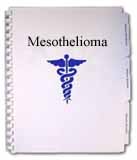|
Mesothelioma and Lung Cancer News - Return to Menu
7th Grace executive last to plead not guilty
Tristan Scott
Montana Kaimin
March 31, 2005 - William J. McCaig, the former general manager of a Libby mine operated by W.R. Grace and Co., pleaded not guilty to a 10-count federal indictment Tuesday during his arraignment at the Missoula Federal Courthouse.
The indictment charges that seven top executives of Grace knew their Montana mine was releasing dangerous cancer-causing asbestos into the air and conspired to hide the known hazards from workers and area residents.
Six of the former and current employees pleaded not guilty at their arraignments Feb. 22.
McCaig did not appear with the rest of the men because his attorney, William Coates, had another trial that conflicted with the date.
U.S. Magistrate Judge Leif Erickson released McCaig following the arraignment but required him to surrender his passport and remain in the United States, report to the probation office in Missoula each month and refrain from possessing any firearms.
The same restrictions applied to the other six men.
All seven will appear at the federal courthouse for a pretrial conference at 9 a.m. today before Judge Donald Molloy.
The purpose of the conference is to arrange scheduling for the trial and to review the defense counsels’ preparations.
In the 49-page indictment, former manager of the mine Alan Stringer is accused of obstructing efforts by the Environmental Protection Agency to investigate the asbestos contamination beginning in 1999, when national reports first linked asbestos from the mine to the deaths and illnesses of nearby residents. That year, the EPA declared the mine a Superfund site and has since spent more than $55 million on cleanup.
While suppressing studies spelling out the dangers of its product, company officials supplied vermiculite to a junior high school for use on its running track and lied about it during the EPA’s investigation, according to the indictment. The document also cites instances in which company officials lied about having provided vermiculite insulation to locals for their homes, as well as for use at a nearby ice rink.
Stringer faces a maximum penalty of 70 years in prison, while Jack Wolter, former vice president and general manager of the mine’s Construction Products Division, and Robert Bettacchi, a senior vice president, each face maximum prison terms of 55 years.
The company could face a fine of up to $280 million — twice the amount of mining profits earned during its years of operation. Others named in the indictment are Henry Eschenbach, former health official for a Grace subsidiary; O. Mario Favorito, chief legal counsel for Grace; and Robert Walsh, former Grace vice president.
Vermiculite from the Libby mine was frequently used as attic insulation and as an ingredient in fireproofing products, potting soils and fertilizers.
While many former employees have developed asbestosis as a result of their direct exposure to the mine, their family members also suffer, since the tiny asbestos fibers were brought home on workers’ clothing.
Exposure to asbestos can lead to lung cancer and asbestosis — a disease that causes scarring of the lung.
Asbestos sparks alert at the LGI
By Vicki Shaw
Health Reporter
18 February 2005 - A MAJOR safety alert has been sparked at Leeds General Infirmary following the discovery of deadly asbestos. Around 30 plant rooms – which house boilers, air conditioning systems and other maintenance services – have now been classified a "red risk" following a re-inspection of the sprawling site.
And a risk assessment will be carried out on staff who have worked in the areas and may have been exposed to the fibres. In previous tests one of the plant rooms at the LGI was given the all clear as completely free from the material and people had returned to work there.
However, a further "routine" inspection carried out this weekend unearthed significant amounts of asbestos.
Now another 30 rooms have been switched from amber to red risk, as a precautionary measure.
Today hospital bosses were at pains to stress that the rooms are not in public areas and neither patients nor visitors should be affected.
However, staff have raised concerns about working in the areas and about the long-term health implications.
Last year, the YEP revealed how maintenance crews were being paid just 17p an hour extra to work in the affected areas. Staff now having to use the areas will also have to follow further strict guidelines.
An in-depth study – expected to take up to three weeks – is now being carried out by the hospital's asbestos team in conjunction with specialist contractors.
A spokesman for the Leeds Teaching Hospitals NHS Trust, which runs the LGI, said: "Our main concern is to assess the potential risk to staff who may have worked in this plant room and provide them with the appropriate advice and support. As all of the areas concerned are restricted, we are confident that patients and the public are unaffected."
Asbestos is an extremely hazardous material, the dust of which has been linked with the lung disease mesothelioma.
Both LGI and St James's Hospital – dating back to the Victorian era – are thought to contain large quantities of the material which was used routinely in buildings of that age.
|

































